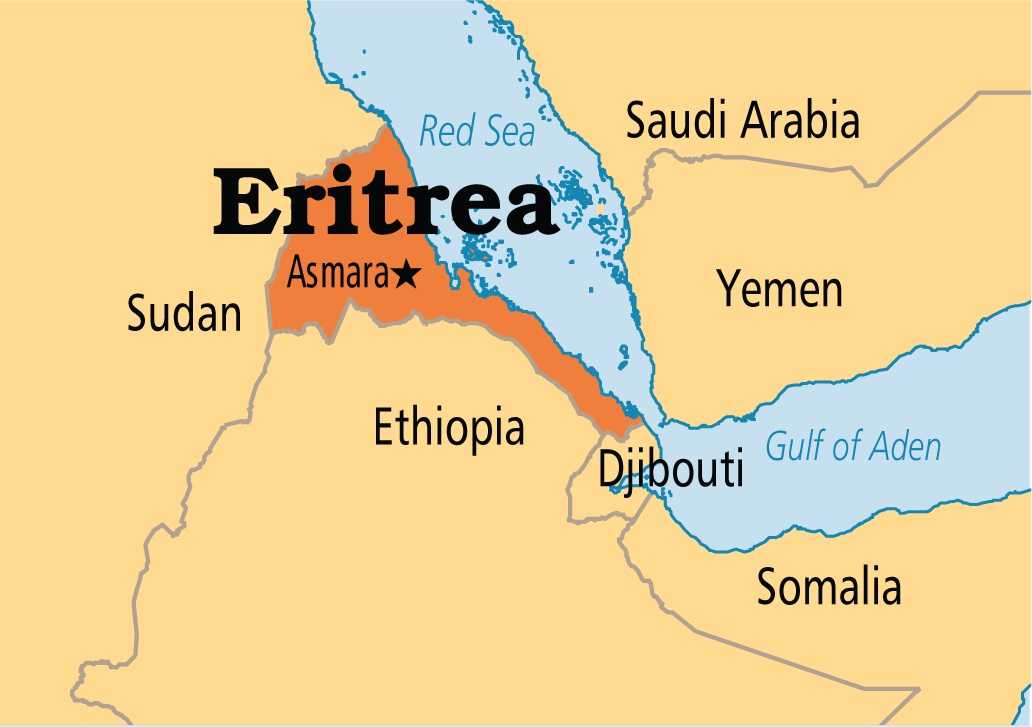*By Ondrus and Thomas Tiedemann, EU Delegation in Eritrea
Standing amongst his coffee trees, Husen Mohamed Jimie Shibot is pleased with his current crop.
“I would not feel like a real farmer if I didn’t grow my own coffee”, he says. Like over two thirds of Eritreans, Mr Husen works in agriculture. He has always lived in the Geleb region, about 100 km north of the capital Asmara, where he started to work on his parents’ farm as a young man.
By now, Mr. Husen is himself a father and grandfather – but only he and his wife still live on their family farm in Geleb.
“I always wanted at least one of my four children to stay and take over the farm, looking after us in our old age – that is the traditional way of life in Eritrea”, he says. But though the Eritrean climate has always been dry and crop cultivation a challenge, the conditions Mr Husen faces are very different to those of previous generations.
As is traditional for farmers in this area, Mr Husen depended on rain-fed agriculture, mostly planting a variety of cereals such as barley, sorghum and millet as well as cultivating coffee trees. Global climate change contributed to worsening climatic conditions.
The limited and increasingly erratic rainfall and deforestation left little water to grow enough food for personal consumption – let alone any surplus to sell. Mr Husen’s well had been dry for years, making any type of crop irrigation impossible.
Variable rainfall and an overall reduction in precipitation led to poor harvests. With the farm unable to sustain the growing family, Mr Husen’s children moved away long ago, taking low-paid jobs in Eritrea’s service industry.
Mr Husen’s story is typical for many Eritrean farmers. As the average yearly rainfall in the region is now below 300 mm (less than half that of Germany), reliance on rain-fed agriculture becomes increasingly precarious. Most of this precipitation falls in the rainy season from July to September.
During these months, heavy downpours can transform the local Chemorat River into an uncontrollable torrent. Once this surface water has rushed down the valley, however, it is lost. The river is reduced to a trickle for the rest of the year.
Deforestation has reached a critical rate with the loss of thousands of trees a year. As forests slow the run-off of water and increase filtration rates to recharge underground water reservoirs, this has had a significant impact on the availability of water for irrigation.
Soil erosion and declining soil fertility are also major problems. Only very few farms in the area are mechanised and traditional ways of cultivation and harvesting prevail. This lack of modern tools, seeds and fertiliser means Eritrean farmers are unable to enhance their harvests and leaves them dependent on worsening climatic conditions.
Given the number of livelihoods depending on the country’s agricultural sector, investment in better techniques and a move towards irrigated agriculture for year-round farming therefore makes a real difference.
In partnership with the government and other stakeholders, the EU has therefore supported agricultural projects worth close to €50 million in recent years. Within the framework of government policies, EU support has helped to build numerous dams, hillside terraces and irrigation structures.
Six million tree seedlings have been produced in tree nurseries and planted throughout the country.
Since the start of the activities in Geleb, two dams have been built to recharge ground water. In order to distribute the water, a solar driven pump has been installed in the Geleb tree nursery, so it is not dependent on expensive fossil fuels.
Mr Husen is one of the 400 000 beneficiaries of these projects, which aim to increase agricultural production by at least 10 % in the country. The construction of a dam close to his farm has recharged the ground water and he can draw water from his well once again. He has also learnt how to effectively irrigate his land and fight soil erosion.
“As there is now water available for irrigation, I can water plants throughout the year and have ventured into horticulture”, he says, presenting his newly cultivated guava and apple trees, the seedlings for which he received from the nearby Geleb nursery.
“Thanks to the irrigation, I hope to harvest enough to sell the surplus on the local market and even transport some to the town of Keren”.
His apples will fetch high prices in Eritrea as most apples are imported from countries like South Africa. But it is the healthy coffee trees that really give him confidence. Coffee is an important part of Eritrean culture – as are family ties.
The size of Mr Husen’s land may not be enough to support all his children and their families. But the initiatives supporting agriculture in the area may at least enable one of his children to return to Geleb and take over a profitable farm.
“This would make me happy”, Mr. Husen says. “A family should stay together.”














